
Are we fighting a just war against the Islamic State?
This question is a little provocative so a clarification is in order. There is a distinction between whether a war is just (jus ad bellum) and whether it is being conducted in a just manner (jus in bello). In the case of IS it is incontrovertible that there is just cause for war. I have argued elsewhere that what is happening in IS occupied territory is attempted genocide. This legitimises military intervention, especially since the Iraqi government has requested help. What I wish to examine here is whether this war is being conducted justly.
Just war theory provides us with several principles that limit what is morally permissible in war. There are two principles that give us cause for concern when assessing the intervention against IS: proportionality and non-combatant immunity. The first of these is the idea that the means of war must be proportional to the ends. Soldiers should aim for victory, but this does not mean that victory can be pursued by any means necessary. There must be, to use Michael Walzer’s term, an ‘economy of force’ (Walzer, Just and Unjust Wars, 129-33). A general should not waste the lives of his soldiers in a bloody offensive when there are more economical means to victory. He should not resort to tactics that will produce longstanding bitterness and prolong the war (such as taking no prisoners).
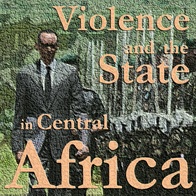
Paying your soldiers and building the state in post-genocide Rwanda
Ensuring soldiers have legal access to financial resources is crucial for the state to fulfil its primary mission: retain the monopoly of violence. As seen in the Democratic Republic of Congo, difficulties providing soldiers with adequate resources may result in deteriorating discipline, corruption, defection, and human rights abuses.
Rwanda after the genocide faced the difficult task of paying its soldiers. The post-1994 situation made this challenge inescapable. The Rwandan Patriotic Front (RPF) took power in a ruined country. The economy was entirely destroyed, and fleeing officials of the previous regime had emptied state coffers. The resources to pay soldiers were virtually non-existent. In addition, following the RPF victory, many families returned from exile to Rwanda. Consequently, soldiers of the Rwandan Patriotic Army (RPA, the armed wing of the RPF) were not just guerrilla fighters anymore: they became fathers, husbands, or brothers again. This new financial burden on soldiers’ shoulders created a form of indiscipline largely unknown until then in the RPA’s ranks. In addition, the meagre salaries were made in cash, transported by intermediaries from the Ministry of Defence to soldiers, which multiplied the opportunities for embezzlement and the creation of ‘ghost soldiers’. Worse, the opportunities for soldiers to borrow money were extremely limited at the time. Many had no property in Rwanda and consequently no collateral to offer to the few banks still functioning.
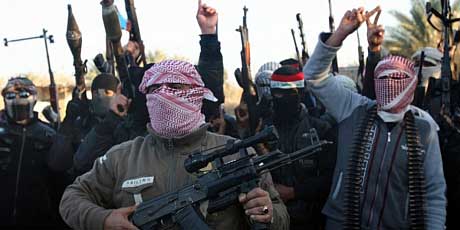
Is bombing ISIS atrocity prevention or a token gesture ?
Last week, the UK government voted, by a huge majority of 481 MPs, to engage in military action in Iraq. Now, once again, we are effectively at war in the Middle East.
For anyone committed to humanitarian inclinations, military force – so easily legitimated through hyperbolic statements of threat, and dramatic images of missiles precisely destroying targets through an aircraft’s gun-sights – should be treated with deep scepticism. Yet the tendency to reflexively reject and virulently condemn military action out of hand is no less lacking in critical reflection than the mindless swallowing of hawkish hyperbole.
The international community has rightly been condemned for standing by and allowing genocide to occur in Rwanda in 1994, and in Darfur in 2003. Is this a similar case? The unfolding and deepening disaster in Iraq seems very much of our own making; so will inaction make us again culpable in unspeakable human suffering? Or is the impulse to fight mere atavistic “war fever”?[1] To answer these questions we need to interrogate two more: first, is the threat of ISIS as great as is claimed? And second, will military action do any good?

And so it continues…: Rwandan refugees and the latest bilateral politicking in the Great Lakes
The year 2002 marked the initiation of discussions concerning the suitability of invoking Article 1C(5) of the 1951 Convention Relating to the Status of Refugees to deal with the protracted Rwandan refugee caseload. This Article permits a declaration by countries and UNHCR that ‘the circumstances in connexion with which he [the refugee] has been recognised as a refugee have ceased to exist’, and therefore ‘he can no longer…continue to refuse to avail himself of the protection of the country of his nationality.’ In short, the ‘ceased circumstances’ Cessation Clause constitutes an international validation of positive change in post-conflict governance and the meaningful re-establishment of the citizen-state bond, as well as providing a legal normative framework for the repatriation of former refugees.
It is easy to see why the GoR so earnestly pushed for the invocation of the Cessation Clause throughout the Noughties. Internal and external legitimacy was waning under the weight of mounting evidence that domestic politics was partisan and exclusionary at best, authoritarian and murderous at worst. The regime wanted to repatriate potential opponents back to within the state’s jurisdiction. Achieving international consensus over the suitability of refugees returning to Rwanda was thus a potential way to refute accusations concerning human rights abuses within the country, and to exercise more control over possible critics. Controversially, the High Commissioner for Refugees announced support for the cancellation of status for all Rwandan refugees by the end of 2011. After seven years of lobbying and contestation, this therefore constituted a major victory for the RPF.
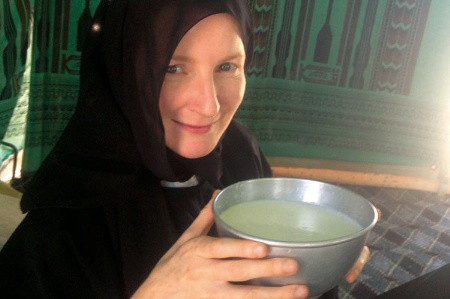
Oxford to Yemen: from literary scholar to tribal adviser
In today’s academic environment, two watchwords that crop up on most project target lists are interdisciplinarity and impact. Find out how both are being brought to bear on new research in the outlying tribal regions of Yemen. As a Senior Research Fellow and Arabic specialist I have been working in Egypt and Yemen in the years following the outbreak of the Arab Spring in 2010. My research started in Egypt with a survey of media, culture and public opinion in the aftermath of the revolution, together with political scientists from Oxford’s DPIR and Cairo University. At the same time, my study of the use of poetry in Yemen’s jihadist journals brought me to a new political interest in how Yemen’s transition to a federal system is playing out in Yemen’s eastern regions. Together with local tribesmen, I sought to gather popular opinion on the range of social, economic and political challenges facing them, which in turn precipitated the formation of an elected cross-tribal council. I’m continuing to talk to governments and the UN about problems faced by the tribes in eastern Yemen and the associated political instability.
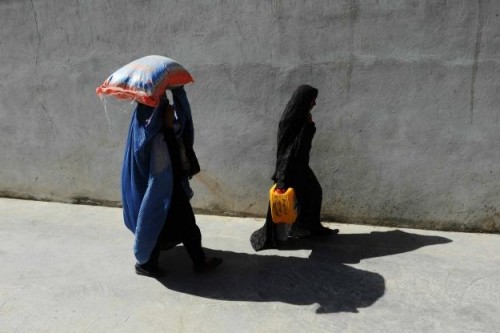
Stabilising provincial Afghanistan: How to get It right
Kabul’s ongoing presidential election negotiations aren’t the only dramatic transition underway in Afghanistan. The ambitious U.S.-led “surge” launched in 2009, which bolstered foreign troops mainly in southern and eastern Afghanistan, has given way to a drawdown, paralleling a major downsizing in the development sphere. Aid budgets are contracting, and provincial reconstruction teams (PRTs) and other subnational civil-military installations — long key international platforms to distribute aid and engage local politics outside Kabul — are closing down.
As the local-level foreign official presence phases out of more volatile and remote areas, how should donor assistance strategies adjust? A new paper from the U.S. Institute of Peace, which builds upon fieldwork from the past three years, argues that 2014 marks an important opportunity for donors to recalibrate three central tenets of their subnational governance and development strategy.
First, donors should revise their conceptions of assisting Afghan government “service delivery.” To be sure, delivering services seems commonsensical in a country that sorely lacks them, but PRT-based projects often confused their ambition to cultivate recurring services with their reality of launching a constellation of unsystematic and often one-time projects. The sheer numbers of foreign personnel and agencies operating at the subnational level — all responding to a higher-level focus on “burn rates” — further fueled the disparate character of aid distribution.
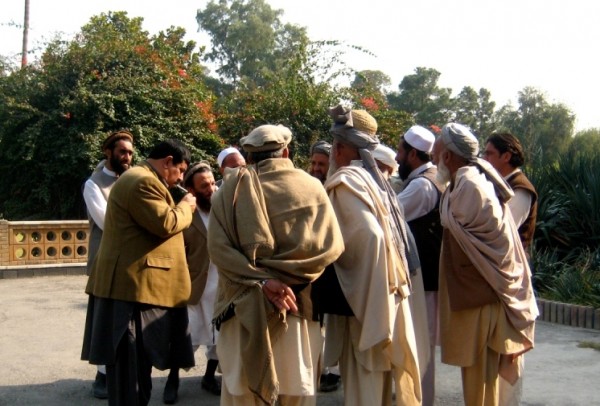
Lessons from Afghanistan: Warlord politics aren’t always bad for democracy
“Without branding all generals and statesmen as murderers or thieves … a portrait of war makers and state makers as coercive and self-seeking entrepreneurs bears a far greater resemblance to the facts than do its chief alternatives: the idea of a social contract, the idea of an open market … the idea of a society whose shared norms and expectations call forth a certain kind of government.” Charles Tilly, 1985
As Afghanistan’s election season marches on, Charles Tilly’s unsavory portrait of statesmen as “coercive and self-seeking entrepreneurs” seems eerily resonant. Observers worry that despite record turnout by voters, the campaigns featured opportunistic deals between power brokers with checkered backgrounds and that those bargains will determine the election’s ultimate outcome. Indeed, over the past decade foreigners and Afghans alike have bemoaned the slippery and self-interested machinations of Afghanistan’s ruling class. The international community has invested a great deal to help the Afghan state move toward the ideals of good governance we associate with liberal democracy in the West. Why has progress been so halting?
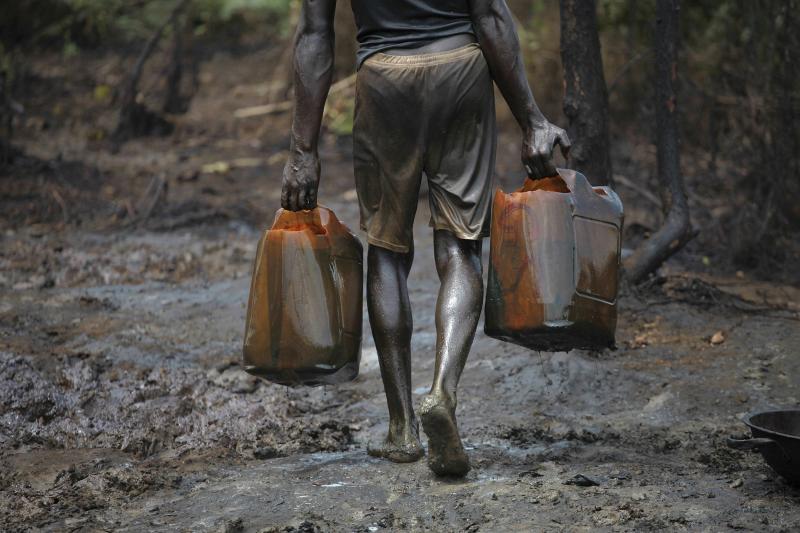
Avoiding Africa’s oil curse
East Africa is the global oil and gas industry’s hottest frontier. Barely a month goes by, it seems, without a major discovery in Mozambique, Tanzania, Uganda, or the eastern Democratic Republic of the Congo.
This new African windfall is hardly without precedent. Several west and central African states — most notably Angola and Nigeria — have already experienced petroleum booms of their own. Over the last decade, they benefited from a spectacular jump in oil prices, which rose from $22 per barrel in 2003 to $147 per barrel in 2008 and remained high, for the most part, until recently. The spoils were enormous: from 2002 to 2012, Angola’s GDP jumped from $11 billion to $114 billion and Nigeria’s went from $59 billion to $243 billion.
The opportunity afforded by this extraordinary decade was unprecedented and is unlikely to recur. Sadly, however, decision-makers have mostly squandered it. If the new east African producers are not to repeat the mistakes of the established ones, then, they should heed the lessons of Africa’s last oil boom.









